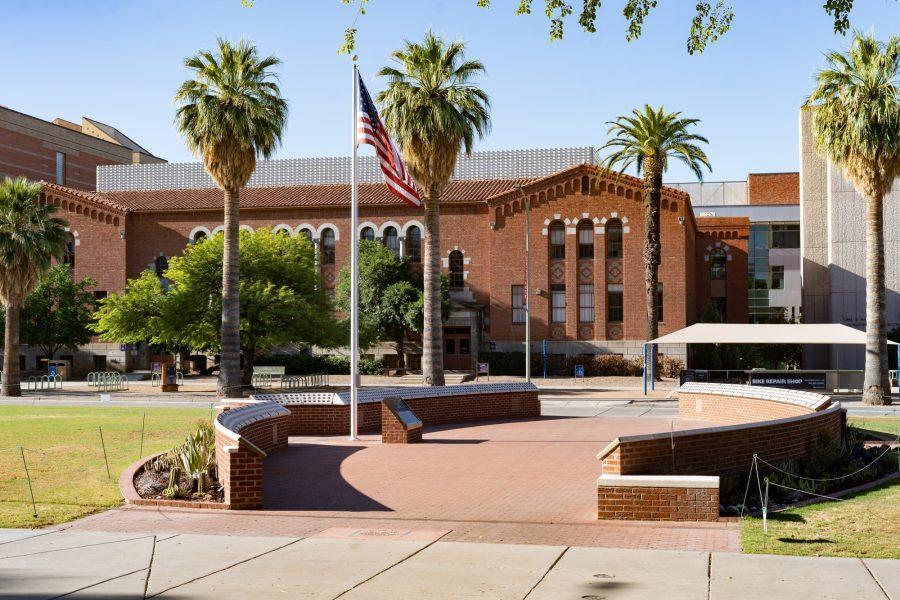Recently, the United States Surgeon General proclaimed the pandemic will be “our Pearl Harbor moment.” The militarist language calls for patriotic sacrifice while framing our COVID-19 reality as a battle of life and death — a tacit acknowledgment that the language of care largely failed to convince Americans to reduce their chances of spreading the virus.
However, as a Japanese American and researcher of Asian American religion, art and history, this turn to the image of Pearl Harbor results in my profound dis-ease.
Why might I feel this way? The answer is not a simple correlation of ideology with my family’s ethnicity (especially considering their immigration in the early 1900s) or my political location (an independent Xennial). It is also not raw fear in the face of rising COVID-19-related violence against Asian Americans in the United States. Rather, my response arises from a complex, internally contradictory and unresolvable state of being. This is also the case for many Asian Pacific American students at the University of Arizona and they — along with their fellow students — are hungry to make sense of “our Pearl Harbor moment.” Serendipitously, professors and administrators across the university, building upon decades of organizing by students, community and faculty for Asian Pacific American Studies, have been hard at work to create classes and a potential minor that would address such needs. In honor of Asian American Heritage Month, I will present my experience along with knowledge of Asian Pacific American studies to illustrate how this field can speak to our current moment.
RELATED: OPINION: I got the antibody test. Here’s how it went.
As a second-year professor at the university, I have walked through the USS Arizona Mall Memorial nearly every day, a monument to this iconic ship that fell in the attack on Pearl Harbor. This experience unearths several points of mind. I think about my “Religion and Popular Culture” course (RELI 150B1), where my students listen to Sen. Martha McSally (then Rep. McSally) introduce the monument and consider the intended gravitas of their daily university experience. I think of my years in Hawaii when I peered down at the remains of the USS Arizona and drew in the violence of the colonial Japanese military. I think of Japanese Hawaiians who fought in that battle; then, to my granduncles who fought in Europe while their families were incarcerated without due process in the internment camps. Camps in which my paternal grandparents met and married, involving a military guard who used his camera for their wedding photo (since cameras were contraband). I turn to the war’s “resolution” of atomic bombs — one dropped on the Christian city of Japan — and the celebration of the evaporation of people who look like me. Needless to say, our university itself draws out complex emotions and experiences across generation and location.
Asian Pacific American studies reveals that such multilayered states of being are not new for Asian Pacific Americans. Language of military necessity against an Asian saboteur bent on disrupting America’s health, economy and morality is a recurrent thread in the fabric of American life. I can point to the 19th century screening of Chinese immigrant women on the presumption they were diseased prostitutes to the 20th century fear of Vietnamese refugees as guerrilla fighters to the 21st century fear of South Asians as terrorists. These times entailed hate crimes, immigration restrictions and misguided popular culture representations. Lately, while wearing a medical mask around campus, I am constantly reminded of the reality of this history and the image of the enemy that I inhabit. Needless to say, as a scholar, I understand that “our Pearl Harbor moment” has happened before, and my present experience is akin to that of generations of Asian Pacific Americans.
Asian Pacific American studies reveals that there is no easy culprit, like ignorance or economic insecurity, that we can eradicate to halt these cycles of history and prevent multilayered, complex senses of self. Instead, APA studies uncovers how Asian Pacific Americans, who embody international interconnections of culture, politics and economy, were precursors to today’s globalized world. In this way, the field provides theories and practical skills to navigate the 21st century. “Our Pearl Harbor moment” is therefore equally a call to study Asian Pacific Americans as a model for resurfacing together to face the demands of our era and beyond.
Opinion pieces, guest commentary, letters and online comments do not represent the opinion of the Daily Wildcat.









